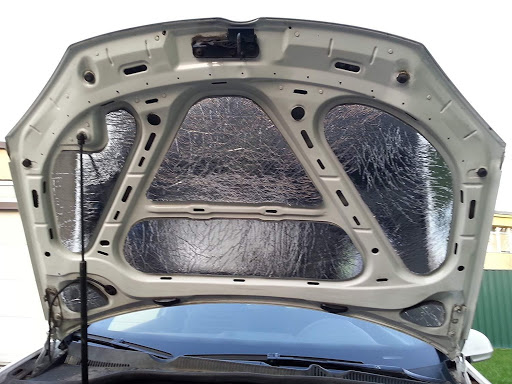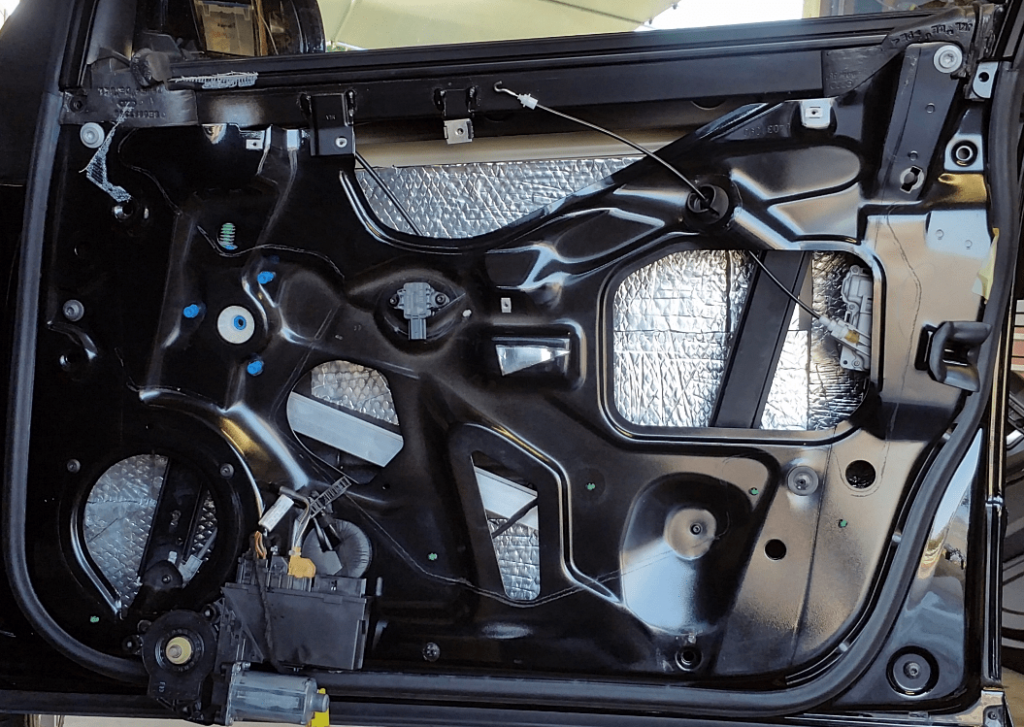We’ve all experienced the irritation noise can cause when you just want a little bit of silence. The noise that travels through our front doors and windows while keeping us awake at night, can cause irritation. Homeowners have taken certain measures to keep noise out and in. Why would we want anything different for our vehicles?
Soundproofing vehicles has become a standard practice for car owners who enjoy being surrounded by their own noise. Some cars have built-in sound systems that are so loud, that you can hear them miles away.
To be a considerate road user, car owners use specifically designed automotive soundproofing materials. Using these materials, drivers and passengers will be able to keep the sounds from outside, out, and sounds from inside, in.
There are a wide variety of car noises that can bother neighbors late at night. Especially if you have a custom-built engine, you need to take measures to soundproof your vehicle. Sounds from outside your vehicle can include the tooting of cars, sirens, and construction work. Sounds from inside a car can include engine noise and loud music.
Using sound deadening materials is a must to keep noise from escaping. Learn more about the best automotive sound deadening materials you can purchase for 2024.
Here is a list of the most basic soundproofing materials for your car:
1. Car Insulation or Soundproofing Barriers

Do you know that thick layer of black or beige foam that you can see on the walls of a recording studio? That is soundproofing barriers. Their main function is to block noise by reducing vibrations made from sound waves.
Insulation barriers consist of thick layers of foam, vinyl, or fiberglass. Depending on which brand you buy and the thickness, insulation barriers can be extremely soundproof. They are usually extremely flexible, lightweight, and bendy. You can cut slabs of insulation to fit the exact area of your car’s interior.
No glue is necessary, as most soundproofing foam, vinyl, and fiberglass composites have double-sided tape backings making it easy for you to stick it on the floor, roof, boot, and hood of your car.
The appearance is almost foil-like. This material is suitable for use in RVs, boats, school buses, airplanes, cars, and motor homes.
2. Soundproofing Tape
Even after insulating your vehicle with soundproofing barriers there will be some areas where noise can escape. This is where you’ll need an extra seal. Soundproofing tape is an extremely sticky and thin bonding adhesive that can be applied to vinyl, foam, and fiberglass insulation barriers.
This rubber and aluminum-based tape comes in a variety of shapes and sizes. It’s easy to cut and apply to certain areas.
3. Soundproofing Mats

Soundproofing Mats are great alternatives to soundproofing barriers. They can be placed on the floor of your car, underneath the seats or in the boot. Most soundproofing mats are made from a closed-cell foam design to act as a sound barrier. Being very high in density, soundproof mats absorb and insulate sound.
Another alternative mat material is rubber. Typically, cars will come with rubber mats that are placed on the floors, underneath car seats. When placed underneath household appliances like washing machines, tumble dryers, and stereo systems, rubber mats absorb sound that wants to travel through the floor to your downstairs neighbors.
4. Soundproofing Coat
The base of any soundproof car is a durable coat. Yes, you can get a liquid substance that is specifically designed to keep unwanted noise out of your ears.
A gallon of the coat can cover up to 40 square feet of a car’s interior. You can apply double coatings that will enhance the noise and vibration absorption functionality. Many soundproofing coats functions as a paint-like substance that won’t crack or chip. It’s great to seal those hard-to-reach nooks and crannies inside your car. Applying this coat to floor plans, insides of doors, and trunk liners underneath other soundproofing barriers will guarantee a quiet ride.
5. Clear Soundproofing

When there are softer sounds that are irritating you while driving then a thin sheet of soundproofing polymer will be your best friend. This strip of lightweight sticky material can be applied to metal surfaces. You can block out rattling and ticking sounds from car parts with it as it’s specifically engineered to reduce vibration from metals.
6. An Acoustic Absorber
Probably the cheapest material used to absorb unwanted noise is an acoustic absorber made from recycled cotton. Pieces of cotton are pressed together to create a sound absorption material that can trap heat and is resistant to water damaging like molding.
Music sounds much better in a car that has some of these panels on the floors, as it improves sound insulation too.
If you are still wondering whether or not you should soundproof your vehicle.
Soundproofing Benefits
Here are a few benefits for considering soundproofing your vehicle:
- The better sound inside your car
- Increases privacy, as you can listen to what your heart desires without anyone eavesdropping
- You won’t disturb pedestrians, neighbors, or passersby
- Won’t violate any sound pollution laws
- Gives your car a luxurious atmosphere
- An overall more enjoyable driving experience, especially during long road trips
- Will eliminate irritating car sounds like a noisy engine, loud exhaust, rattling car parts, or tire noises.




